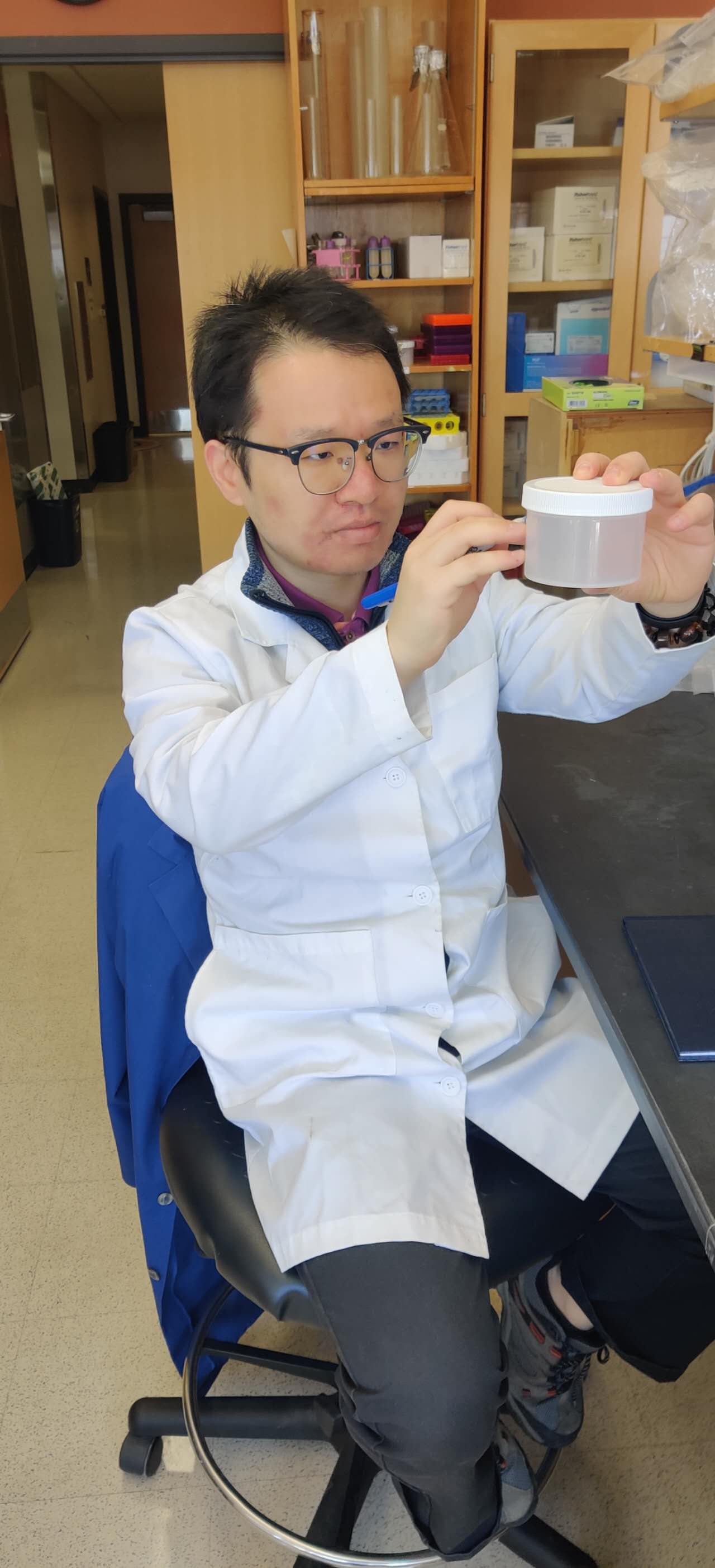
Journal Menu
► ▼ Journal Menu-
- Diversity Home
- Aims & Scope
- Editorial Board
- Reviewer Board
- Topical Advisory Panel
- Instructions for Authors
- Special Issues
- Topics
- Sections & Collections
- Article Processing Charge
- Indexing & Archiving
- Editor’s Choice Articles
- Most Cited & Viewed
- Journal Statistics
- Journal History
- Journal Awards
- Conferences
- Editorial Office
Journal Browser
► ▼ Journal BrowserNeed Help?
Announcements
31 March 2023
Interview with Dr. Zhichao Zhou—Winner of the Diversity 2023 Young Investigator Award
We are pleased to announce the winner of the Diversity 2023 Young Investigator Award—Dr. Zhichao Zhou.
|
|
Name: Dr. Zhichao Zhou Affiliation: Department of Bacteriology at the University of Wisconsin–Madison, USA Website: https://zczhou2017.wixsite.com/mysite |
Dr. Zhichao Zhou is an Assistant Scientist in the Department of Bacteriology at the University of Wisconsin–Madison, USA. Dr. Zhou’s research interests are in the metagenome- and metatranscriptome-based interpretations of biogeochemical functions and activities, environmental and energy dynamics mediated by microorganisms, microbial community interactions, the environmental microbiome, the virome, and population genomics. Dr. Zhou received his Ph.D. in 2017 and has an outstanding publication record, comprising 47 publications in peer-reviewed international journals. His Google Scholar citation number is 2147, and his H-index is 23. He is a rising star in the field of environmental microbiomes and viromes. As a single applicant, Dr. Zhou has obtained multiple awards, including the Lorus J. and Margery J. Milne Scholarship (2016, MBL Microbial Diversity Course), the third prize of Polar Science Excellent Paper (2012, State Oceanic Administration of China), and a University Postgraduate Fellowship (2012, the University of Hong Kong). These are outstanding achievements in today’s competitive environment.
We thank the award committee for their hard work in the difficult task of selecting a winner from such a large number of exceptional candidates. We also thank all the nominees from various fields for their participation. We will continue to reward young scientists with the Young Investigator Award, and wish them every success in their careers.
The following is an interview with Dr. Zhichao Zhou:
1. Can you briefly introduce yourself to our readers?
I spent my childhood in a small town in central China and went on to study biology at Wuhan University. During my studies, I discovered a strong interest in microbiology and excelled in microbiology experiments. After completing my undergraduate studies, I pursued my graduate studies in Hong Kong, where I developed a range of molecular microbiological skills and gained experience in studying the molecular ecology of marine microbiology. I came to the United States before the pandemic and joined my current lab to study the marine microbiome and virome, especially focusing on the ecosystem of hydrothermal vents. In my free time, I enjoy riding my bicycle, listening to music, and exploring the woods. Furthermore, I am a big fan of brewed foods and drinks, such as beers, frozen yogurt, and chocolate, which are gifts from microorganisms to human beings.
2. What are you currently researching, and what made you choose this field?
| In the later stage of my Ph.D. studies, I recognized the growing importance of high-throughput sequencing and large-scale data processing in microbial ecology and took the initiative to develop my skills in these areas with the help of my Ph.D. advisor. After completing my studies, I spent several years in a dry-experiment-based lab studying microbial evolution and ecology while also refining my bioinformatic skills. I am now an Assistant Scientist in Dr. Karthik Anathanraman’s lab, where I am leading a project on the ecological and evolutionary dynamics of freshwater lake viruses over a 20-year period. Our goal is to analyze changes in viral populations in response to seasonal and physicochemical variations by harnessing bioinformatic and statistical techniques. The freshwater lake—Lake Mendota—located just to the north of our university campus, is a research hotspot to study the microbiome and virome dynamics during a long-course time series. It is a very important component of the US Long-Term Ecological Research Network for North Temperate Lakes. The research outcome will significantly contribute to the current understanding of viral ecology and diversity, which leads to impactful influences on local freshwater lake environments. |
|
3. Have you had difficulties to overcome in your work? How did you approach those situations?
There will always be difficulties in researching science since many originally planned attempts may not work. Sometimes, small mistakes will lead to a big problem and cause lots of energy and time to re-check the whole pipeline. Sometimes, debugging the script itself is also painful and tends to be very stressful. At these times, I first try to take a deep breath, calm down, and re-organize my thoughts. Then, for me, making a to-do list and detailed time plans is usually a way to overcome these tough problems or tedious issues. Breaking down complex tasks into small, manageable steps and maintaining focus on one step at a time can lead to a more effective approach to finally achieving the goal. During each step, confidence will be established, and I will be more skillful and familiar with the problem.
4. What qualities do you think young scientists need?
Persistence, diligence, good habits, and a clear mind.
5. We are an Open Access journal. How do you think Open Access impacts authors?
Open Access journals can allow all academic members to access the publications easily. They also tend to have a wide range of editors and reviewers, which leads to a more diverse and open-course peer-reviewing system. Now, many society journals have changed to full or partial Open Access. I think this will be the trend of the future.
6. As the winner of this award, is there anything else you would like to say or anyone you would like to thank?
I want to thank my Ph.D. advisor, Prof. Ji-Dong Gu, who initially encouraged me to apply for this award. He guided me to this field, offered me lots of opportunities to reach out, and is still my advisor on many issues even today. I express my special gratitude to him.
For more information about Diversity awards, please refer to the following link: https://www.mdpi.com/journal/diversity/awards.





